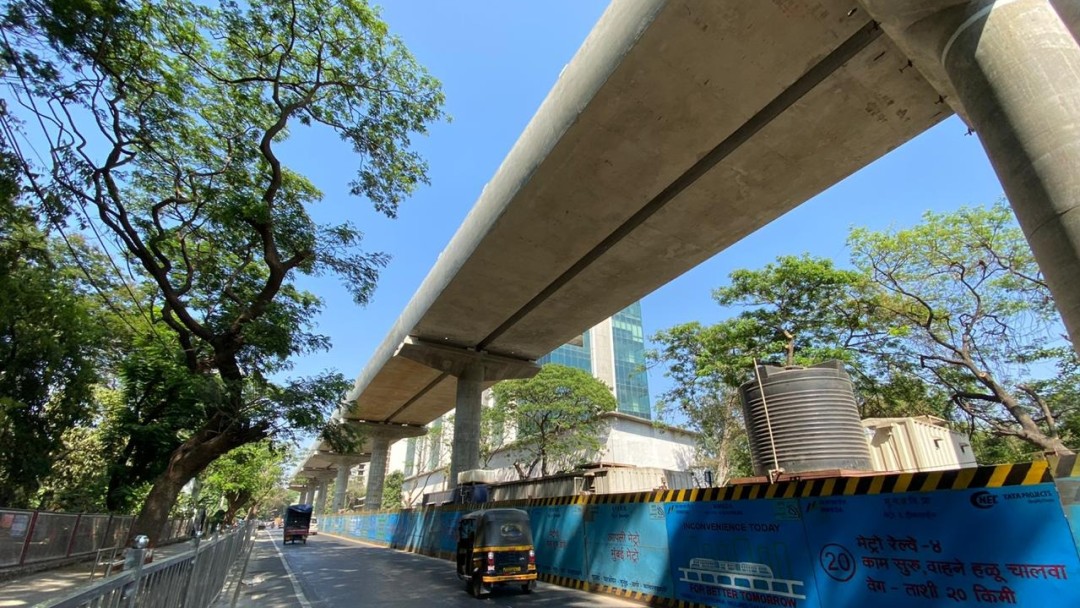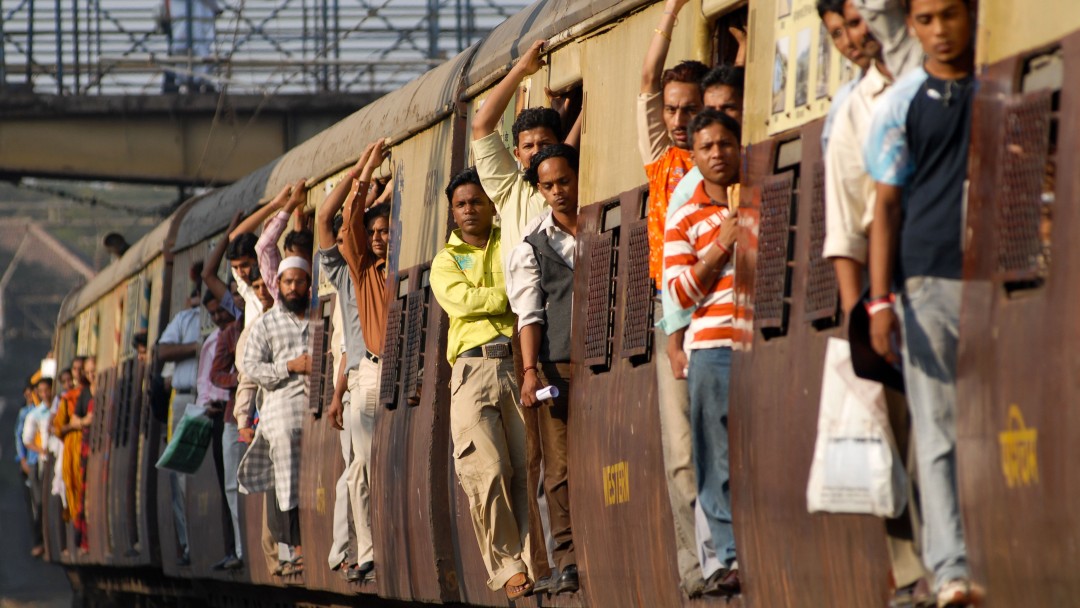News from 2020-11-06 / KfW Development Bank
More climate protection and traffic safety
KfW supports expansion of Mumbai Metro

Mumbai is massively expanding its public transport system. The positive effects will be considerable: pollution levels will be reduced and the number of fatal accidents in traffic will decline. KfW is therefore promoting public investment in the urban transport system by providing loans totaling EUR 545 million for the financing of a metro line in Indian mega city.
Approximately 20 million people live in the greater Mumbai region. Eight million people use commuter trains every day, which currently account for almost half of public transport. The train cars are chronically overcrowded and dangerous as a result. Eight people die every day in accidents in this rail system – in addition to accidents on the crowded city roads. Mumbai is a city where distances are long, which is why the average CO2 emissions per capita in the transport sector are higher here than in most other Indian cities.
KfW’s loans are being extended on behalf of the German Federal Ministry for Economic Cooperation and Development (BMZ) to the Indian Ministry of Finance, which will on-lend them to the Mumbai Metropolitan Region Development Authority (MMRDA), an agency of the state of Maharashtra, where Mumbai is located. The funds will be used to purchase, among other things, energy-efficient trains and a user-friendly ticketing system. The project also includes the construction of footpaths, cycle paths and bus stops close to the metro stations. The metro will become more accessible as a result and connected to other modes of transport. A grant of EUR 2.2 million will be provided in addition to the loans to provide technical capacity support.

A complete metro system consisting of 14 lines with around 340 kilometres of track will be built over the next few years in the Mumbai Metropolitan Region. KfW is involved in the financing of Line 4, which runs through the length of Mumbai and also connects the centre of Mumbai with the satellite city of Thane. The cost of this line is estimated at EUR 2 billion. KfW is financing around a quarter of this amount. The 34 km-long route is elevated above ground, as is customary in India for cost reasons. An estimated 1.14 million people per day will have access to trains on Line 4. This will relieve the pressure off the overcrowded and accident-prone commuter trains and reduce individual transport by means of car and motorised two-wheelers. The operation of Line 4 will lower CO2 emissions by around 121,000 tonnes per year and at the same time make an important contribution to improving the city’s air quality.
The Mumbai metro project promoted by KfW pursues the goal of sustainable and climate-friendly urban mobility. It therefore fits well with the Indo-German Partnership for Green Urban Mobility, the flagship of development cooperation agreed by the governments of Germany and India in November 2019.

Share page
To share the content of this page with your network, click on one of the icons below.
Note on data protection: When you share content, your personal data is transferred to the selected network.
Data protection
Alternatively, you can also copy the short link: https://www.kfw-entwicklungsbank.de/s/enzBWrMC.CWbA
Copy link Link copied